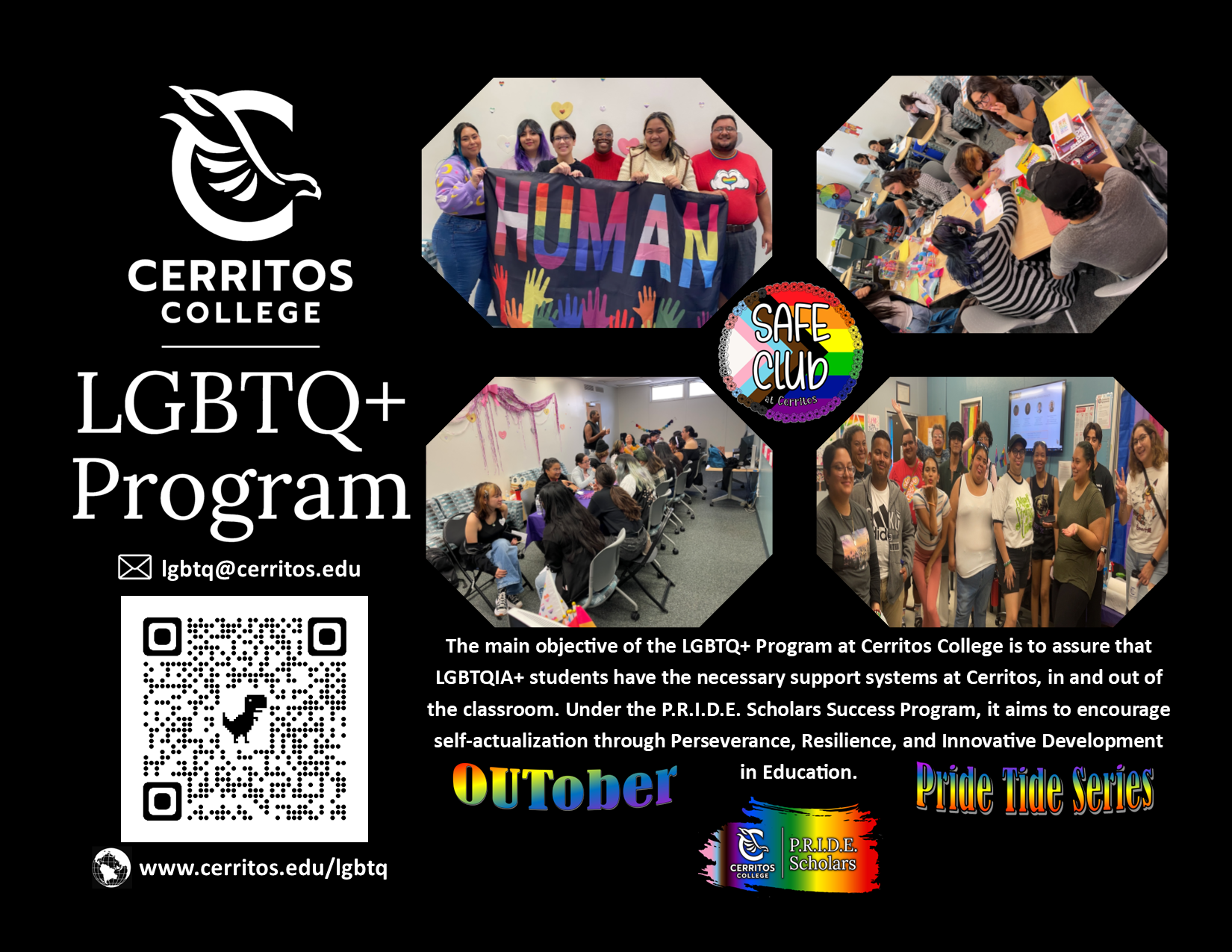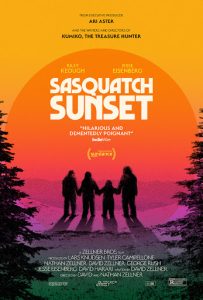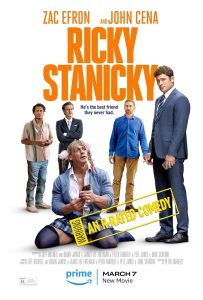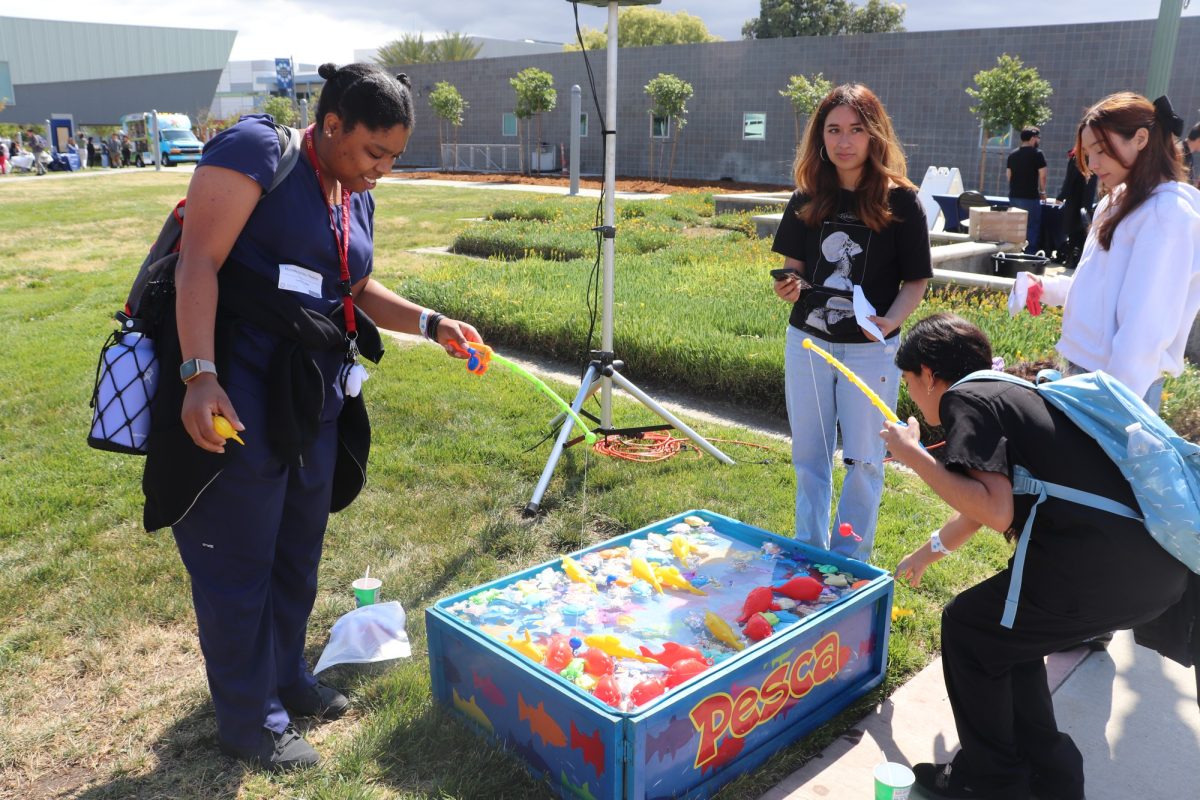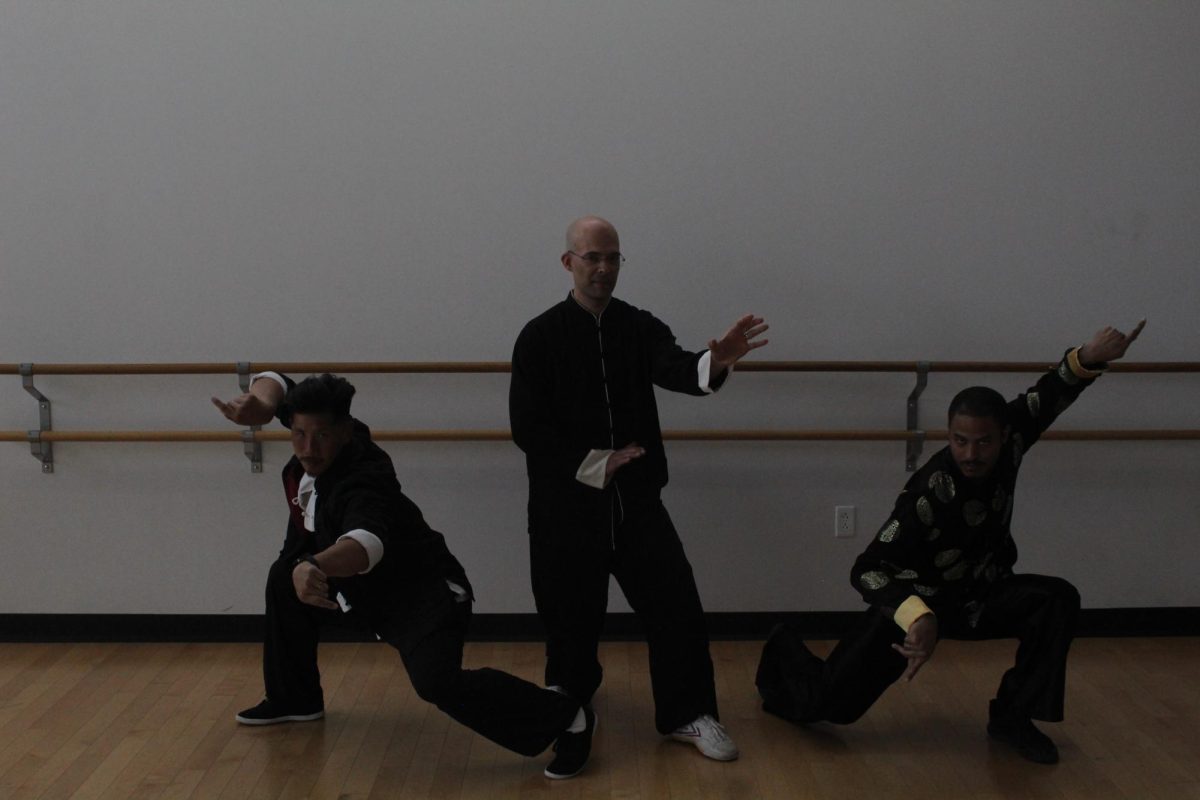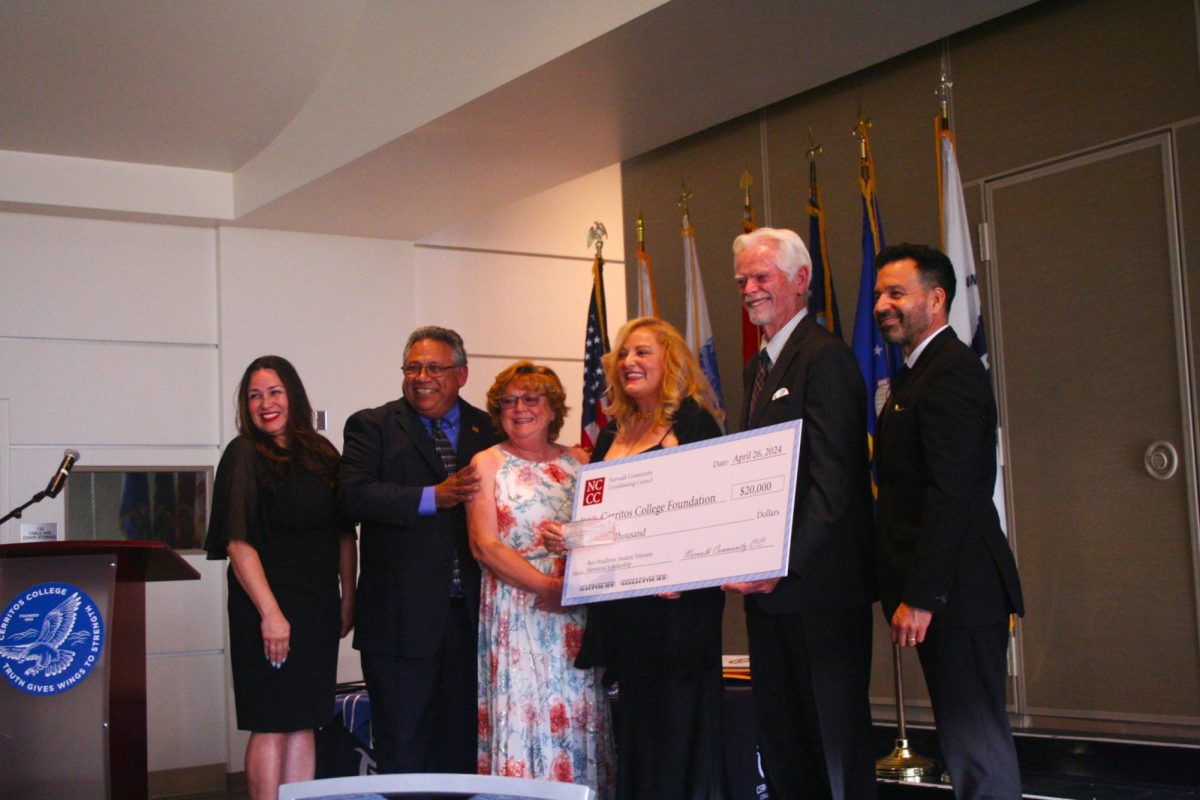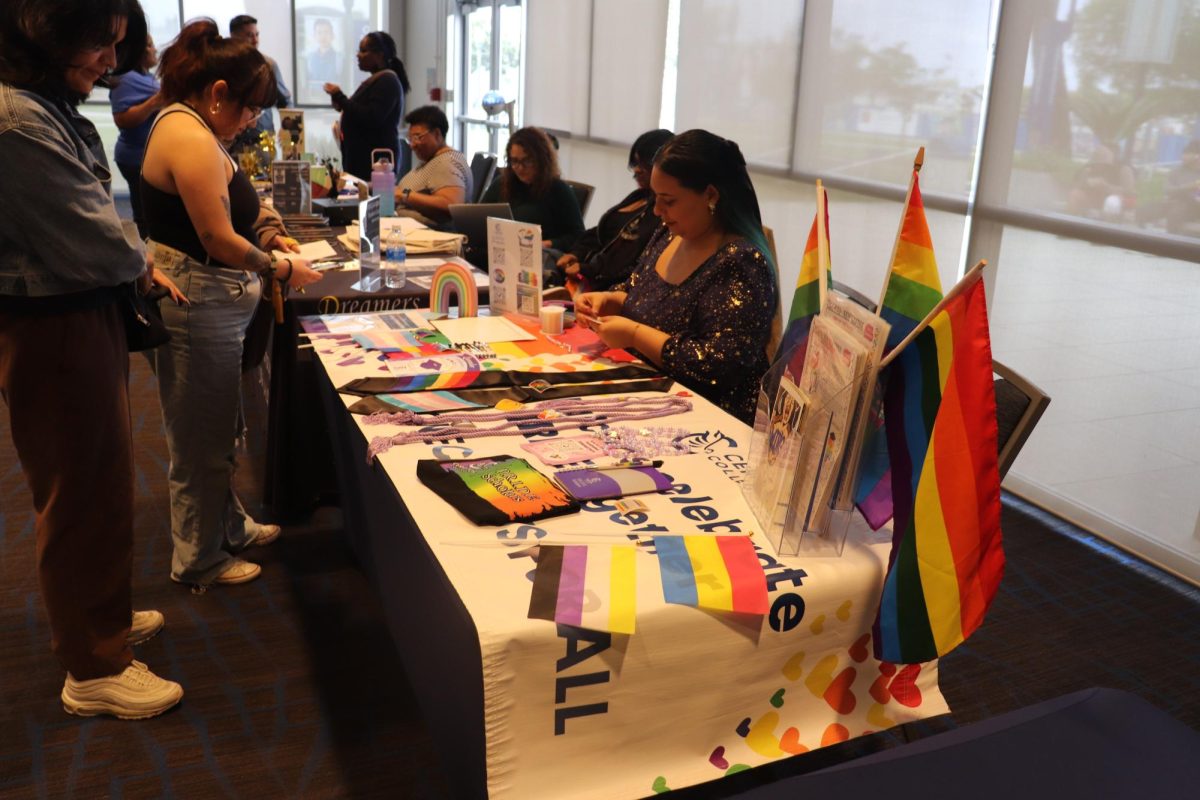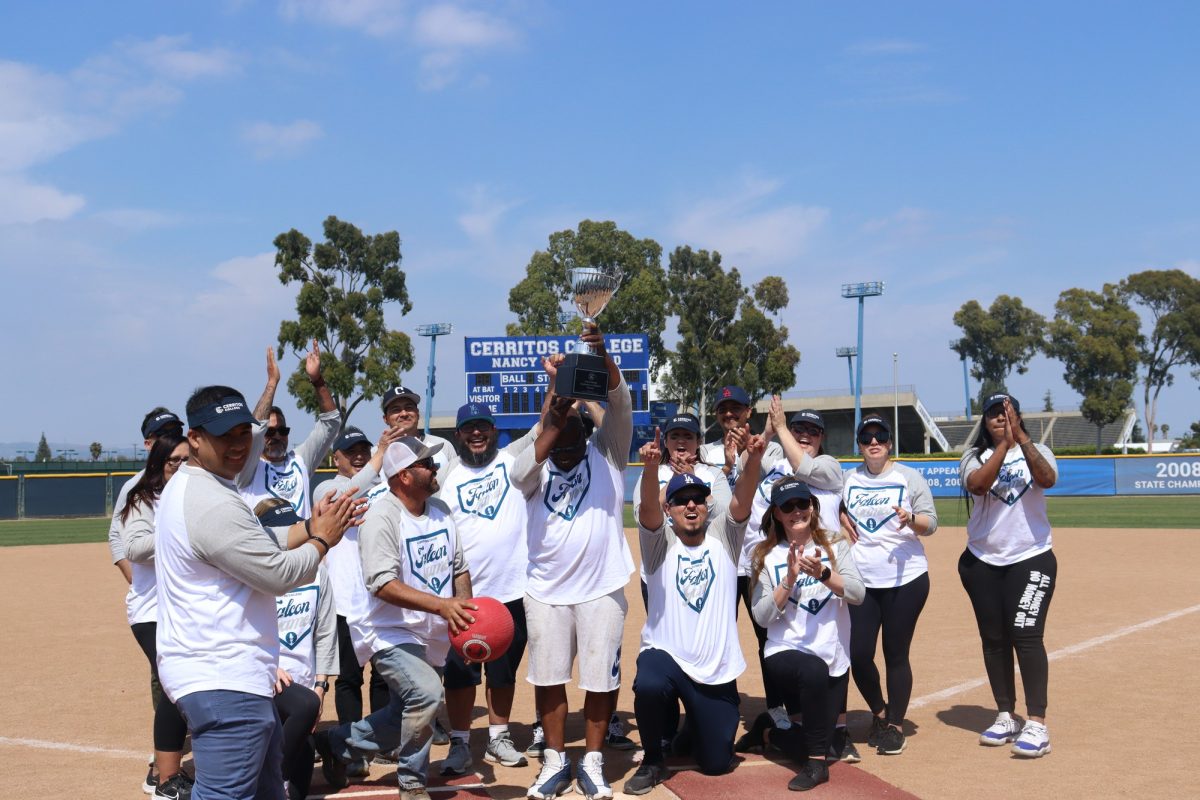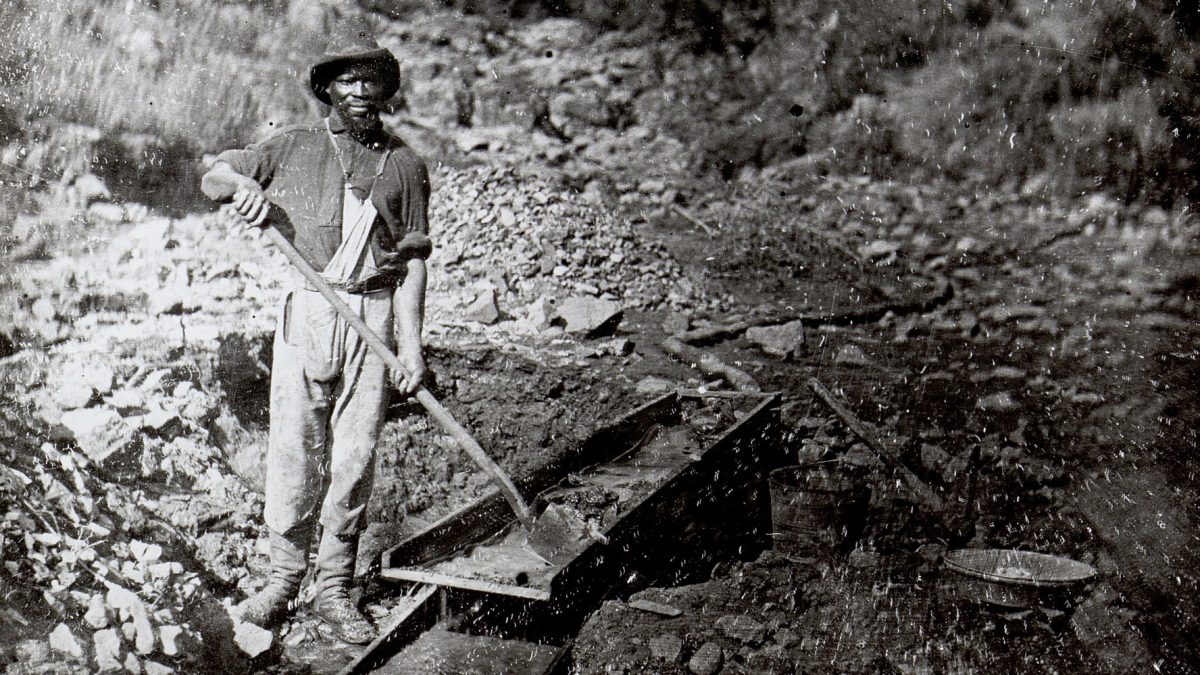“America has lost its innocence . . . the United States will never be the same again.”
Americans have been hearing these types of statements from news anchors, security experts, politicians, and even the president since terrorists hijacked four American planes and used them as weapons of destruction against the American people on Sept. 11 – the worst tragedy ever to occur on U.S. soil.
As a result, discussions between students and instructors at Cerritos College about the country’s recent tragic events have been a normal occurrence in classes lately.
Shaken and in disbelief over the attacks, people in recent days have been expressing a willingness to give up some of the freedoms they now enjoy, if that is what it is necessary to protect the country from future attacks.
According to a recent poll conducted by Susan Pinkus for the Los Angeles Times, a large number of Americans surveyed said they would be willing to accept things like giving up personal privacy to paying more taxes.
How has America been affected? Will life in the United States – or the world – for Americans change? What will happen now? These are questions Americans now find themselves asking.
In an American History class on the Cerritos College campus Saturday, professor Randy Dobson told his class that because of the recent events, their lives are going to change in one way or another.
“Only time will tell,” Dobson said, “but obviously most Americans’ lives will be affected in some sort of way if a major war breaks out.”
Dobson also cited internal security increasing in the United States, greater security at airports, maybe even government tightening up on gun laws . . . “I’m just surmising,” he said. “I just hope it doesn’t result in too much curtailment of our freedoms.”
Referring to his lecture that day, Dobson jokingly said, “Maybe we’ll get some sedition laws passed.”
Americans have already begun to see the short term effects of the attacks: the release of certain movies that depict images similar to the World Trade Towers’ destruction have been put on hold; the wait for airline travel has been longer than usual; travel plans have had to be postponed or cancelled; and according to the Times’ poll, many Americans would be willing to give up many freedoms they now take for granted in the long-term.
In the economy, Cerritos College economics instructor, Sezer Pehlivan said, “The short-term effects of the terrorist attacks will be felt by many industries, especially travel, entertainment, financial services and insurance.
“A prolonged sense of panic will no doubt undermine confidence and magnify the damage to the economy. However, the medium to long-term effects of these events will be small.
“The key to long-term growth is the productivity growth. Since the current productivity growth is still 2-to-3 percent and the physical infrastructure of the nation is not affected, disruptions to the economy will be transitory.
“Some industries may even benefit from this event, such as defense, technology and security. Will the gains be enough to offset the losses? It depends on how Americans and the world will respond to uncertainty in the coming weeks and months.”
In giving a political scientist’s point of view on the effects of the terrorists’ attacks, Cerritos College political science professor, Dr. Sunday P. Obazuaye said, “American politics and World politics for that matter will never be the same again.
“The U.S. government may have to seriously evaluate its foreign policy strategy.
“Terrorists attack to make a political statement,” Obazuaye said. “They try to get at the government through innocent citizens. They don’t necessarily hate the citizens, but in order to get the government’s attention they harm the citizens.
“Their goal is to demoralize, and subjugate the government, create fear in the hearts of the people thereby inciting the citizens against their government. Terrorists usually demand a change in the status quo. This, at least, is the theoretical perspective.”
So far, they’ve failed
Terrorist actions in the United States, so far have not achieved these goals. The U.S. government is far from demoralized as its citizens, as well as its foreign allies have rallied their support for it.
So far, the terrorists have created some fear among American citizens, but that fear has only strengthened their resolve to wipe out terrorism.
In the long term the attacks must serve as “a wake up call to ‘eternal vigilance’ for the ‘free societies’ of the world.” Obazuaye said.
“Because of their values – freedom, openness, free press (media), and modern technologies, these societies are more susceptible to terrorist attacks. They now have to use these common values to form an alliance against terrorism world-wide.”
By the weekend, the United States had already formed an overwhelmingly large coalition of its common allies, as well as having received pledges of support from some not so common nations.
With people from so many nations being killed in the World Trade Center attacks, many nations have said they consider the attacks on Americans, to be attacks on them as well.
As a show of support, Britain and Canada each performed the U.S. national anthem at ceremonies in their countries.
In Saturday’s class, Dobson suggested people avoid formulating extreme opinions. He mentioned how a student in one of his classes’ reaction was to “nuke em’.”
“Who are you going to nuke,” Dobson said. “You isolate this terrorist group in one country . . . are you going to nuke that country; that’s just unreasonable.”
Who is to blame?
On the other end of the spectrum, he feels that now is not the time to place blame on the United States for the attacks.
“I don’t want to go to the extreme position where people are more critical of the United States than of the perpetrators, which I’ve seen this week.
“The United States deserves criticism in a history class . . . because of its sins, but not now, not now.”
In preparing for what lies ahead for the American people, Obazuaye said, “the citizens need to cultivate a sense of community.
“Though we must be vigilant, we must not become pessimistic and distrusting of our neighbors.
“We are a very diverse society and therefore must be sensitive to our fellow citizens, thereby building our community bond and alliance against “strangers” in our midst.”
War?
As of Monday, Pakistan had delivered a message to the ruling Taliban government in Afghanistan that the U.S. government was giving it three days to turn over suspected World Trade Center attack mastermind Osama bin Laden or face military action.
By the end of this week, America could be at war.
Dobson said he would not be at all surprised if U.S. action is greater than in the Persian Gulf War.
From a historical perspective, he said, “Hopefully, a hundred years down the road, they’ll look back at this as a turning point in history, where democracy and freedom wins out over terrorism. . . . Maybe somehow it will bring the world closer together to stamp out an evil.”
Dobson went on to say, “It would be nice to see unity amongst Americans not just in times of crises, but more unity down the road . . . between different ethnic and religious groups.”

